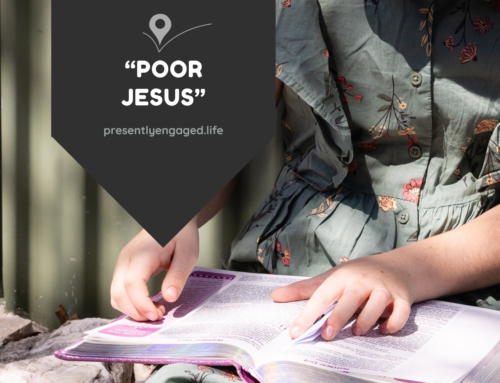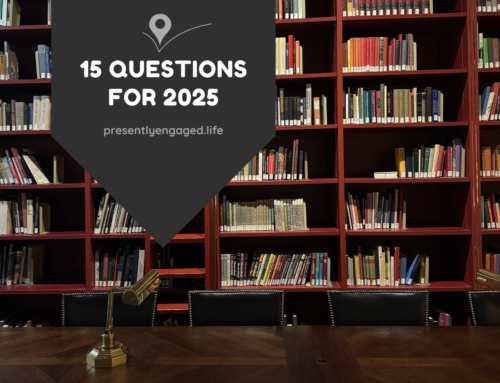What if, when making choices for how you would celebrate the Christmas season of 2019, you knew that in four short months the world would literally go into quarantine?
What if last year, you had known what 2020 would hold?
Would you have gone to that party?
Would you have made those cookies?
Would you have gone caroling?
Would you have snuggled with a child?
Would you have called that friend?
Would you have had coffee with that relative?
Would you have taken that trip?
Would you have streamlined a few things, simplified a few commitments, followed through on a few ideas?
I know I would have.
Open-handed living is taking what God gives with gratitude and joy. It is living in the present, engaged with the people and the moments God places in front of us. It is an awareness of how today affects tomorrow, without being tied up in the unknowns of the future. It is releasing what was last year, not neglecting what is right now in hopes that next time will be different or better.
In his novel Perelandra, C. S. Lewis uses waves to symbolize the things that God sends His children. One wave comes, arrives, then passes. Another wave comes. We cannot hold on to one wave while swimming into the next.
In another scene, Lewis develops the concept. Two characters discuss finding fruit in the woods, along with the idea of expectations:
“One goes into the forest to pick food and already the thought of one fruit rather than another has grown up in one’s mind. Then, it may be, one finds a different fruit and not the fruit one thought of. One joy was expected and another is given.
“But this I had never noticed before—that the very moment of the finding there is in the mind a kind of thrusting back, or setting aside. The picture of the fruit you have not found is still, for a moment, before you. And if you wished—if it were possible to wish—you could keep it there. You could send your soul after the good you had expected, instead of turning it to the good you had got. You could refuse the real good; you could make the real fruit taste insipid by thinking of the other.”
If we wished, we could send our soul after all the good that could be during this holiday season, rather than the good that is. (This is not a new concept to life during a pandemic. Anyone who has ever made a task list that includes children during Christmastime, or opened a different present than the one wished for, knows the importance of open hands and yielded expectations.)
“We call bad one who rejects the fruit he is given for the fruit he is expecting or the fruit he was given last time.”
Let us not reject the fruit we are given because it is not the fruit we were expecting. Jumping to another literary classic, holding on to the ghost of Christmas Past means rejecting the Christmas Present that we have all been given. Fixating on the ghost of Christmas Future means ignoring the beauty of the here and now, the unfolding of Advent.
There is no condemnation for those who are in Christ Jesus (Romans 8:1). This is the part where I remind my heart that I should not condemn myself for decisions made a year ago. I can, however, make decisions this season in light of things learned.
Would you join me in a few “What if’s”?
- What if this is the last pandemic Christmas you ever live through?
- What if this is actually the last Christmas you ever live through? The events of 2020 have been teaching us anew that life is precious and valuable. We are never guaranteed another Christmas, another month, or another breath.
- What if—and this feels like a big if—this is the last holiday season that we experience from behind masks?
- What if the fruit that is given is the perfect fruit for today?
- What if God has a beautiful plan for you to celebrate Him in a new way this season?
- What if we claimed the anthem of faith: “For even this, give thanks”?
This is not permission to live in the fear of “What if?” Rather, it is an exhortation to ponder, “What if I lived in the confidence that what comes my way is first sifted through a loving Father’s hands?”
If you, like me, have a strong desire to seek God’s will and yet are challenged by the bigness of the idea, then start with 1 Thessalonians 5:18: “Give thanks in all circumstances; for this is the will of God in Christ Jesus for you.”
This time of year, churches worldwide celebrate Advent. This same Advent has been observed during pandemics, during wars, during famine, during days of celebration, throughout days of pain and sadness. Advent means “arrival, approach.” It is a time of waiting—waiting for Christmas, waiting for the arrival of the celebration of Jesus’ incarnation. Even now, we live in a time of waiting—waiting for Jesus and His return, anticipating His arrival when He will make all things new and all things right.
For even this, give thanks.






